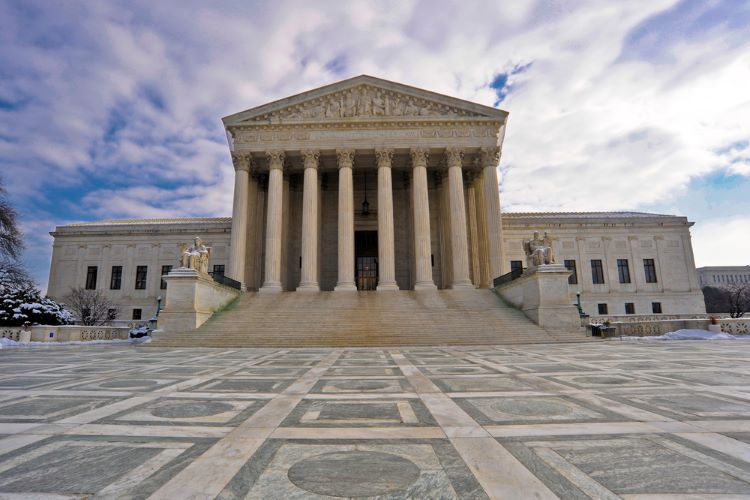SCOTUS will consider constitutionality of home search during gun owner's hospital visit

Image from Shutterstock.com.
The U.S. Supreme Court on Friday agreed to decide whether a police search of a gun owner’s home while he was in the hospital for a suicide evaluation was justified under an exception to the Fourth Amendment.
At issue is whether the “community caretaker” exception to the Fourth Amendment permitted the search, according to the cert petition.
The Supreme Court had recognized the exception in a 1973 case, Cady v. Dombrowski, in which police searched the trunk of a car that had been towed after an accident.
“In the decades since Cady, however, the so-called ‘community caretaking’ exception has taken on a life of its own,” the cert petition said. “Courts across the country are deeply divided about whether the ‘community caretaking’ exception can justify a warrantless intrusion into a home. There is at least a 4 to 3 split on that question among the federal courts of appeals. State courts are similarly divided.”
The cert petition asked the Supreme Court to hear the case and rule that the community caretaking exception can’t be used to justify a warrantless search of a home.
The cert petition was filed on behalf of Edward Caniglia, who retrieved an unloaded gun during an argument with his wife, laid it on the table and said, “Why don’t you just shoot me and get me out of my misery.” Caniglia’s wife ended up spending the night at a motel. When she called her husband the next day, the wife was unable to reach him. She called police in Cranston, Rhode Island, for a wellness check.
Caniglia told police that he would never die by suicide, although he said he told his wife to shoot him because he “couldn’t take it anymore.” Caniglia agreed to go to the hospital, where he was evaluated and discharged the same day.
The officers searched the home and retrieved Caniglia’s guns. Police refused to return the guns until Caniglia sued for alleged constitutional violations under Section 1983 of the Civil Rights Act.
The 1st U.S. Circuit Court of Appeals at Boston had ruled against Caniglia.
Hat tip to SCOTUSblog. Its page on the case, Caniglia v. Strom, is here.



